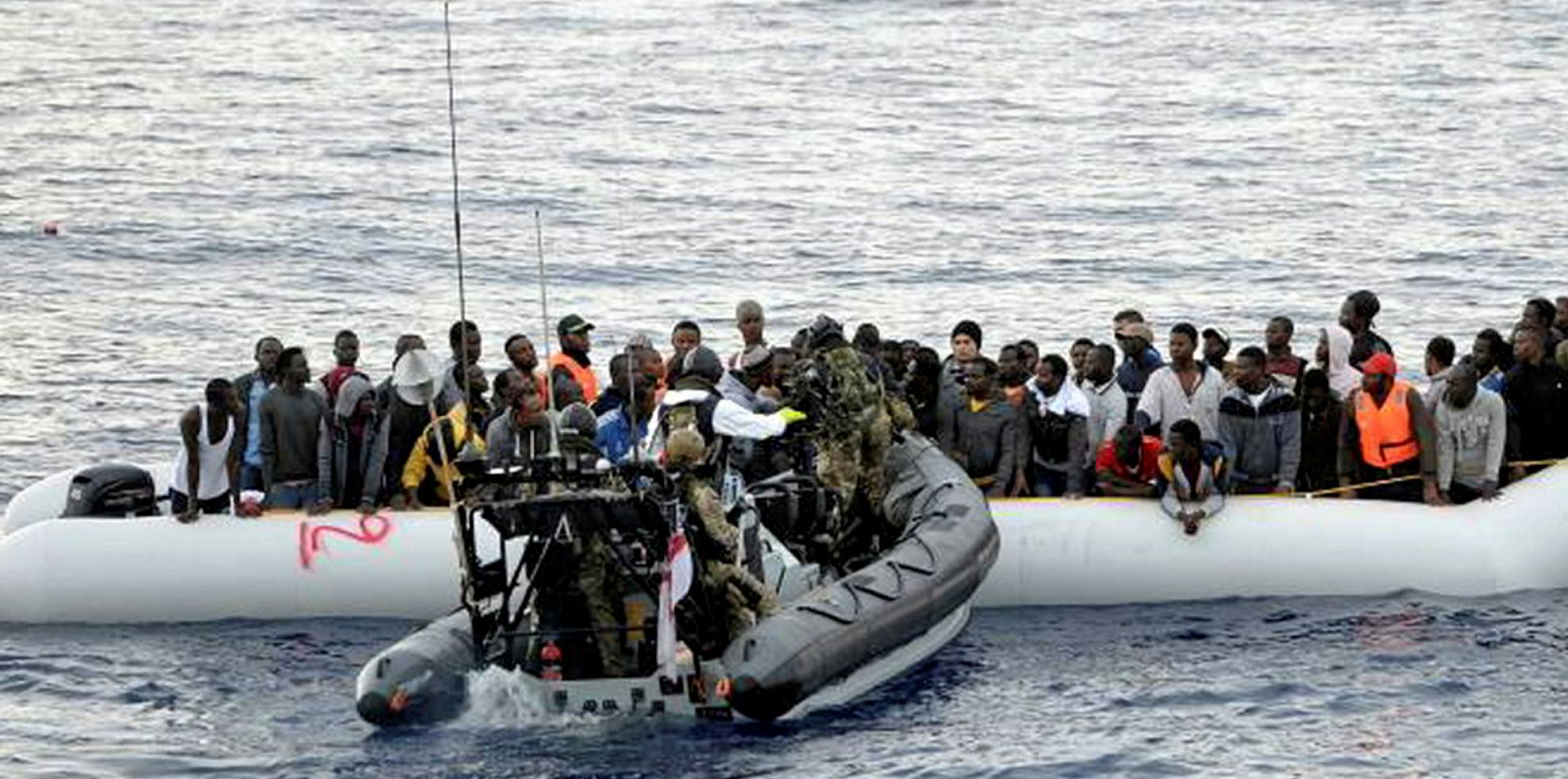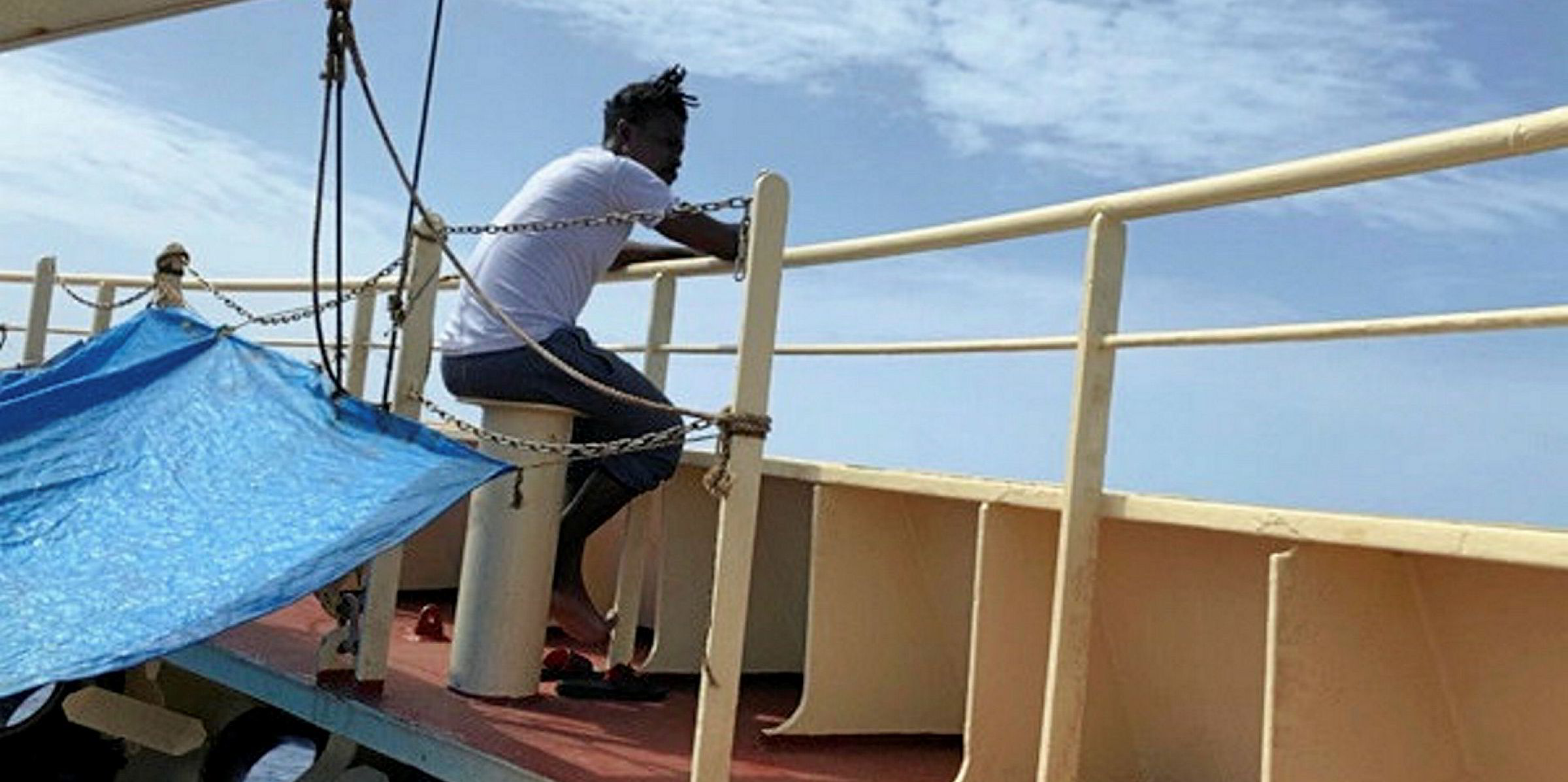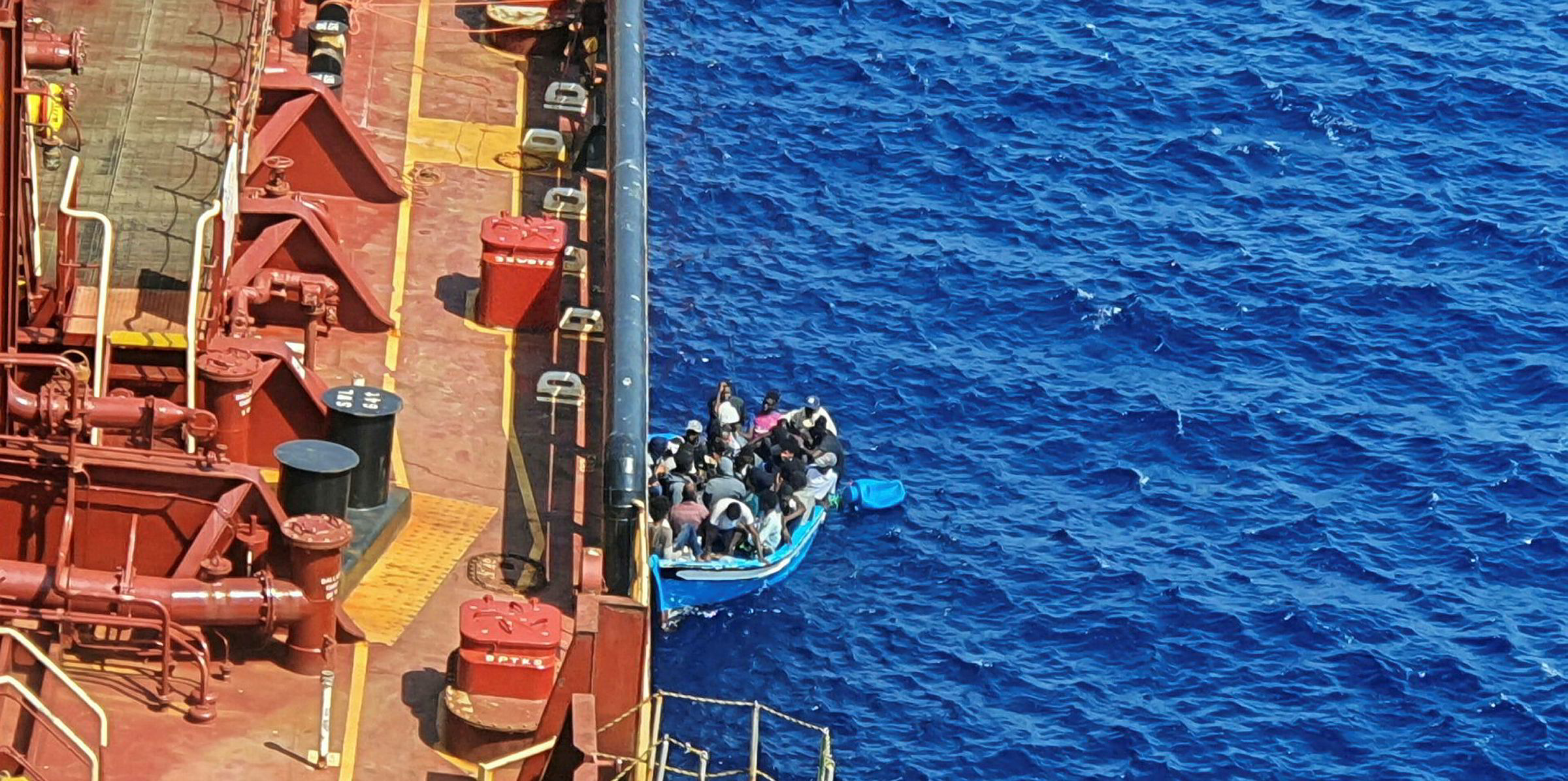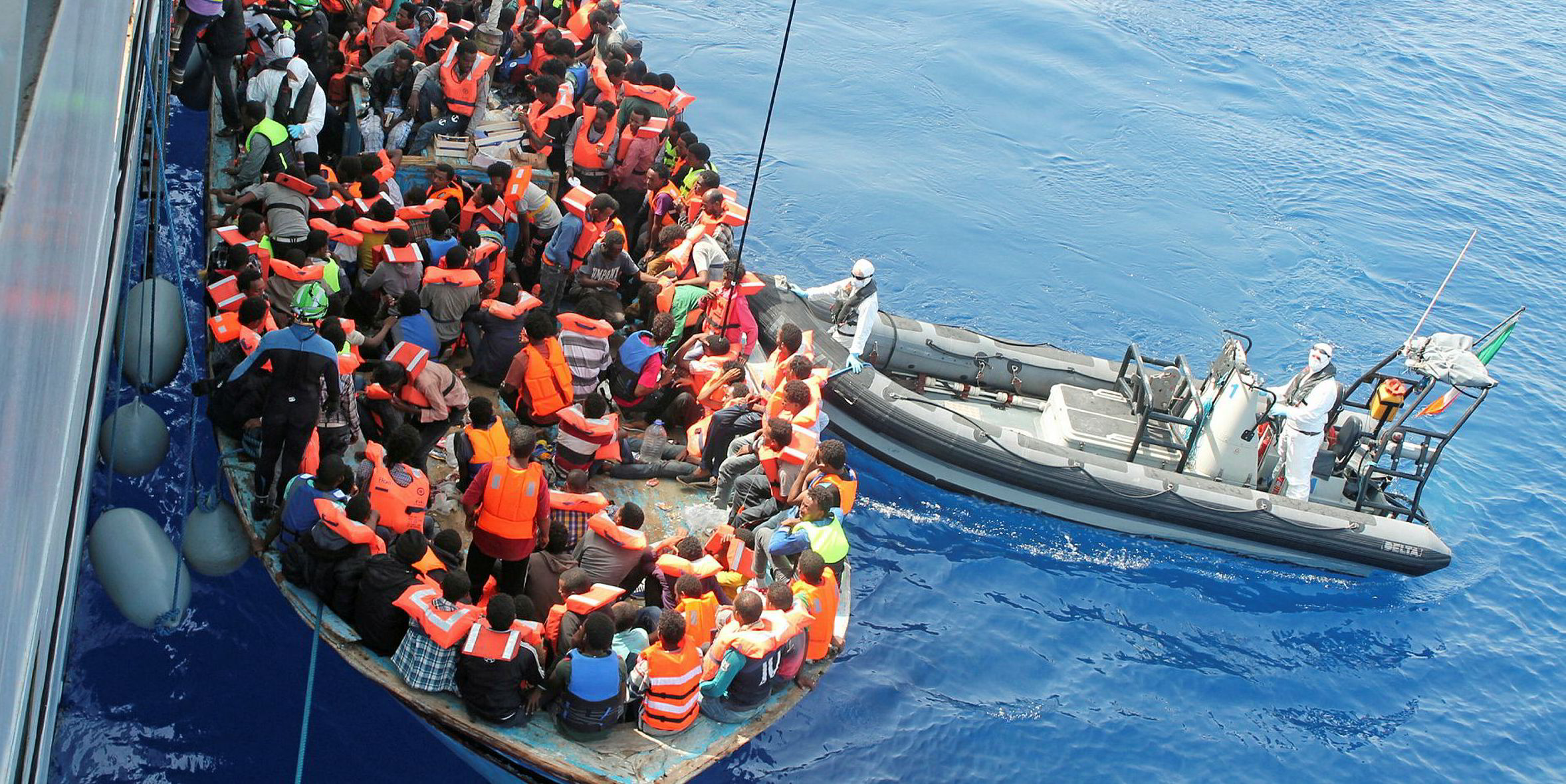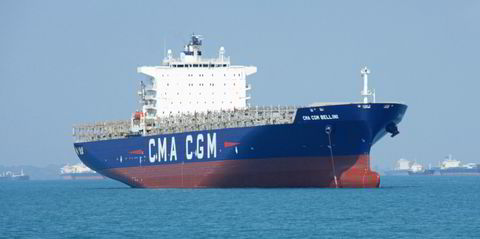The UK government asked British maritime organisations and businesses for help in determining how to prevent migrant boats from reaching UK waters from France.
The unusual request pondered whether solutions such as "floating fences" could be used in the English Channel, one of the world's busiest shipping lanes, according to emails obtained by TradeWinds.
But the government's request was rebuffed by major maritime associations, which said they could find no legal or safe way of fulfilling it.
The request emerges amid reports by The Guardian that the UK government has asked officials to consider sending asylum seekers to offshore detention centres in countries such as Moldova, Morocco or Papua New Guinea.
Unusual request
Emails obtained by TradeWinds show that the UK Home Office's Joint Security and Resilience Centre (JSaRC) in mid-September asked members of industry body Maritime UK for input in how to prevent migrant boats from reaching UK waters from France.
The JSaRC works to bring industry together with the government to tackle national security issues jointly.
The request asks for help with identifying "potential solutions to the small boats challenge", which would be used in a ministerial submission before Parliament, according to the emails.
"JSaRC will carry out a discreet reaching-out to our industry partners and affiliated trade bodies to seek what options are available, for marine fencing and other water-based technologies that would inhibit passage to UK territorial waters at the Median Line," the agency wrote, referring to the point at which French waters end in the English Channel.
The centre said it required solutions such as "capability to fully prevent a slow-moving, heavily overloaded, migrant boat from making progress".
The JSaRC said the solutions needed to be able to [be] deployed and remain in a precise location, "without the equipment entering French waters".
The agency said it is looking for water-based rather than land-based solutions at this time to "ensure a more targeted and serviceable response from industry".
Its request was made in partnership with the UK's Border Force agency and the Clandestine Channel Threat Command, an initiative of the Home Office, according to the email.
Lack of response
But the members of the UK maritime industry said international law prevented them from assisting the government in its request due to international law.
TradeWinds understands that a number of people who received the request were troubled by it and felt uncomfortable in dealing with the matter.
The email itself was sent on 17 September by Maritime UK to its members with a warning that its content was "sensitive".
Recipients included the UK Chamber of Shipping, the British Ports Association (BPA), UK Major Ports Group (UK MPG), the Society of Maritime Industries (SMI) and equipment supplier trade body British Marine.
Ben Murray, director of Maritime UK, said forwarding the government request to its members was a matter of routine.
"As the umbrella organisation for UK maritime, we are a conduit between industry and government and are often asked by government for advice or input on policy matters," he told TradeWinds. "The Home Office engaged us to pass on a question around options to inhibit passage to UK territorial waters, which we gave to our members.
"The clear view, which we shared with the Home Office, was that as a matter of international convention, this is not legally possible."
A Home Office spokesperson said:
"As the public will fully understand, we do not comment on operational matters because to do so could provide an advantage to the exploitative and ruthless criminals who facilitate these dangerous crossings, as they look for new ways to beat the system.
"We are driving innovative tactics to deploy in every aspect of this operation, underlining the Government’s commitment to ending the viability of using small boats to illegally enter the UK."
The UK MPG said it had not responded to the JSaRC request.
"Safety is a key concern for UK MPG across all our activities and that would be the basis for any perspective we would take, together with taking approach that, whilst being consistent with border integrity, reflected overriding values of basic humanity," the organisation told TradeWinds.
The BPA also declined the opportunity to reply to the consultation because it was not relevant to its remit.
"We have not engaged on this particular issue, as it appears to be outside of our area of expertise in that it is not, on the face of it, a security issue and these small boats do not usually land in ports unless they are being assisted by the authorities," BPA chief executive Richard Ballantyne told TradeWinds.
"We do encourage ports to participate in ‘Project Kraken’ — encouraging people to report suspicious behaviour at sea — but it is beyond our capabilities or remit to disrupt vessels whilst at sea and it is difficult for us to see how this could be done without potentially creating or exasperating safety issues for those aboard."
British Marine said it did not participate in the consultation but would not comment further.
The UK Chamber of Shipping decline to comment.
